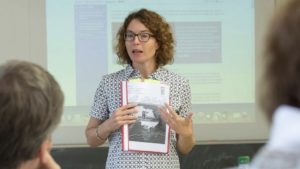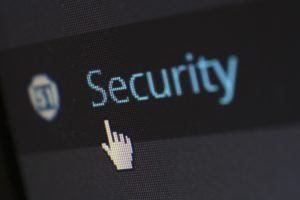- Asset Tracing & Recovery
- Corruption & Bribery
- Rule of Law & Enforcement
- Financial Investigations Training
- Governance & Accountability Systems
- Sustainability
- Forensic Auditing
- Artificial Intelligence & Cyber Security Solutions
 Asset recovery refers to the repatriation of the proceeds of corruption hidden in foreign jurisdictions. The World Bank estimates that $20 to 40 billion dollars in illicit assets are transferred out of emerging economies each year, including the proceeds of corruption out of which only $5 billion have been recovered to date ever. Asset Recovery - the process of restraining assets and depriving criminals of their ill-gotten gains by providing mechanisms through the criminal justice system or using creative legal strategies is a relatively recent development. The United Nations Convention Against Corruption (UNCAC) has established asset recovery has a fundamental principle of the convention and devoted Chapter V to to the mechanism. Stream House has practical experience of working on international financial crime and corruption cases and using both criminal and civil powers to recover the proceeds of crime. The Wikipedia article on International Asset Recovery was co-authored by Stream House experts.
Asset recovery refers to the repatriation of the proceeds of corruption hidden in foreign jurisdictions. The World Bank estimates that $20 to 40 billion dollars in illicit assets are transferred out of emerging economies each year, including the proceeds of corruption out of which only $5 billion have been recovered to date ever. Asset Recovery - the process of restraining assets and depriving criminals of their ill-gotten gains by providing mechanisms through the criminal justice system or using creative legal strategies is a relatively recent development. The United Nations Convention Against Corruption (UNCAC) has established asset recovery has a fundamental principle of the convention and devoted Chapter V to to the mechanism. Stream House has practical experience of working on international financial crime and corruption cases and using both criminal and civil powers to recover the proceeds of crime. The Wikipedia article on International Asset Recovery was co-authored by Stream House experts.
 Corruption has been recognised as a major global and domestic problem corroding the rule of law, equity and wealth of nations. In the last two decades much work has been done around the world to combat corruption. At the same time, many of these reforms have not been as effective as hoped for, frequently lacking the institutional and political foundation for sustainable and equitable change.
Corruption has been recognised as a major global and domestic problem corroding the rule of law, equity and wealth of nations. In the last two decades much work has been done around the world to combat corruption. At the same time, many of these reforms have not been as effective as hoped for, frequently lacking the institutional and political foundation for sustainable and equitable change.
At Stream House we understand the challenges of initiating and implementing successful anti-corruption reforms. We have an established track record in both a domestic and international setting of working with governments, international agencies, the private sector and civil society in developing anti corruption strategies at an enforcement and governance level.
 There are several countries emerging from conflict or those that are newly independent, requiring modernised judicial and legal systems to effectively deal with the threat of organised crime and corruption. They require enhanced institutional capacity as they work towards building fair, just and prosperous societies. Rule of law is often measured against international standards and best practices.
There are several countries emerging from conflict or those that are newly independent, requiring modernised judicial and legal systems to effectively deal with the threat of organised crime and corruption. They require enhanced institutional capacity as they work towards building fair, just and prosperous societies. Rule of law is often measured against international standards and best practices.
Stream House has and continues to work on rule of law projects that are strengthening the independence, efficiency and accountability of judicial institutions in the fight against corruption and organised crime. Stream House experts can assist in developing a broad range of strategies to develop, implement and monitor rule of law institutions and practices in accordance with international standards.
 Over the years, Stream House has assisted several anti-corruption bureaus and commissions of various countries in enhancing their financial investigation capacities.
Over the years, Stream House has assisted several anti-corruption bureaus and commissions of various countries in enhancing their financial investigation capacities.
The training programmes and workshops are practice-oriented and hands-on. We develop real-world highly contextualised simulated cases that; for example, procurement corruption and embezzlement of public funds. These cases – we create situations which are real world and detail all the issues and walking throught the prosecutors and investigators – they gain the skills they need to work such cases.
Our highly regarded experts ensure that officials gain practical skills that can be implemented immediately. A number of engagements include train the trainer programmes which help sustain and institutionalise the learning, as well as international best practices.
 Governance refers to the set of actors, institutions and rules that address common challenges within and across societies. In a globalised and complex world, these challenges need collective efforts to find sustainable solutions.
Governance refers to the set of actors, institutions and rules that address common challenges within and across societies. In a globalised and complex world, these challenges need collective efforts to find sustainable solutions.
Pertinent examples include addressing impunity of powerful political and economic actors, or supporting effective institutions underpinning public accountability and responsiveness.
Stream House works with a process-oriented approach, incorporating political economy analysis to address the underlying causes of inequity. We work closely with the stakeholders, ensuring tailored knowledge transfer, and catalysing networks of change makers.
 Sustainability has firmly been put on the global agenda with the Sustainable Development Goals and Agenda 21.
Sustainability has firmly been put on the global agenda with the Sustainable Development Goals and Agenda 21.
Stream House has a deep understanding of the social, environmental, ethical and economic challenges and opportunities facing the world. This understanding is informed by own research findings as well as practical knowledge and experience.
In our work we aspire to achieve real systems change for more accountable, responsive and sustainable societies.
 Stream House supports forensic audits in a wide range of sectors. The evaluation of a company’s or individual’s financial records are later used in court in order to confirm cases of corruption, as well as conflicts of interest, bribery or extortion.
Stream House supports forensic audits in a wide range of sectors. The evaluation of a company’s or individual’s financial records are later used in court in order to confirm cases of corruption, as well as conflicts of interest, bribery or extortion.
Our experts have extensive experience in managing and directing forensic audits from the energy sector to the financial sector. Uncovering cases of corruption and bringing justice to those defiled by corrupt actions is a high priority for Stream House. Moreover, Stream House actively pursues capacity building and consulting in the realm of forensic auditing, including the development of best practices for government offices.
 The urgent need for establishing a cybersecurity strategy at the national and agency level in countries vulnerable to cyberattacks and thefts cannot be under-estimated. The Stream House network has experts that have developed comprehensive Cyber strategies and solutions using AI based systems to fortify national institutions and financial organisations.
The urgent need for establishing a cybersecurity strategy at the national and agency level in countries vulnerable to cyberattacks and thefts cannot be under-estimated. The Stream House network has experts that have developed comprehensive Cyber strategies and solutions using AI based systems to fortify national institutions and financial organisations.
The solutions deployed address emerging threats in cyberspace including more advanced forms of fraud and money laundering.
